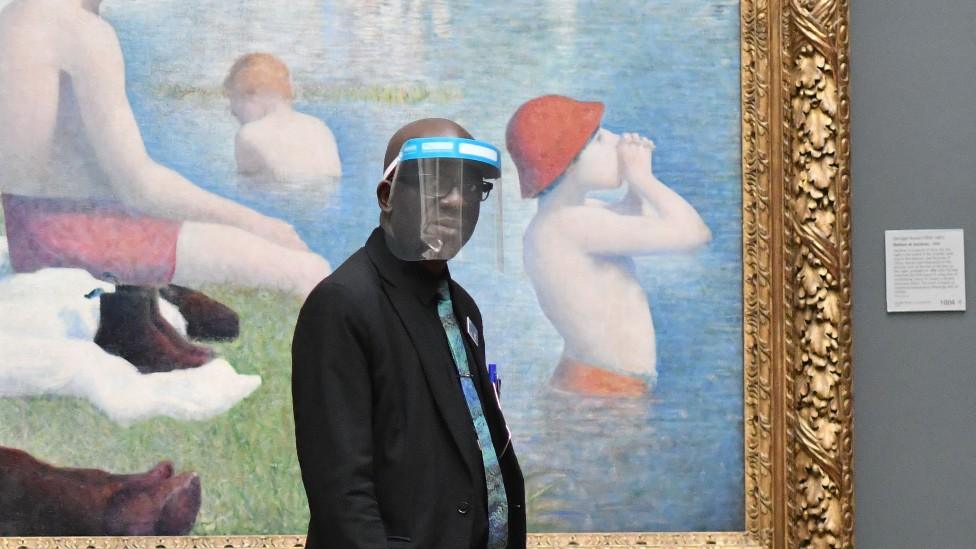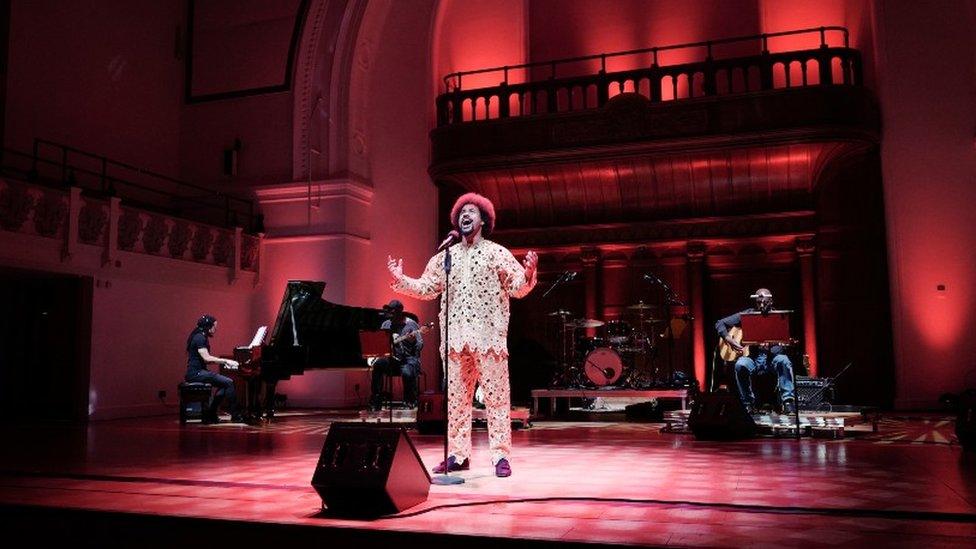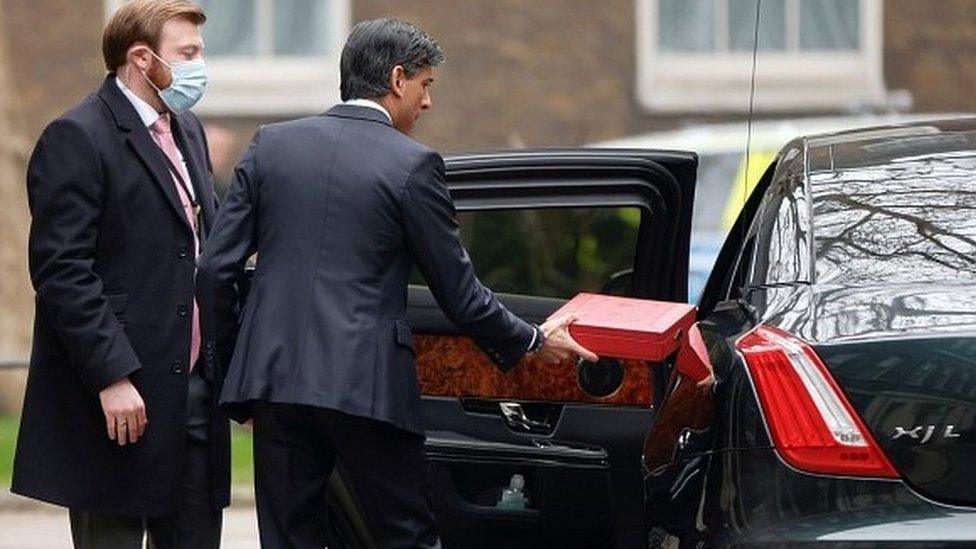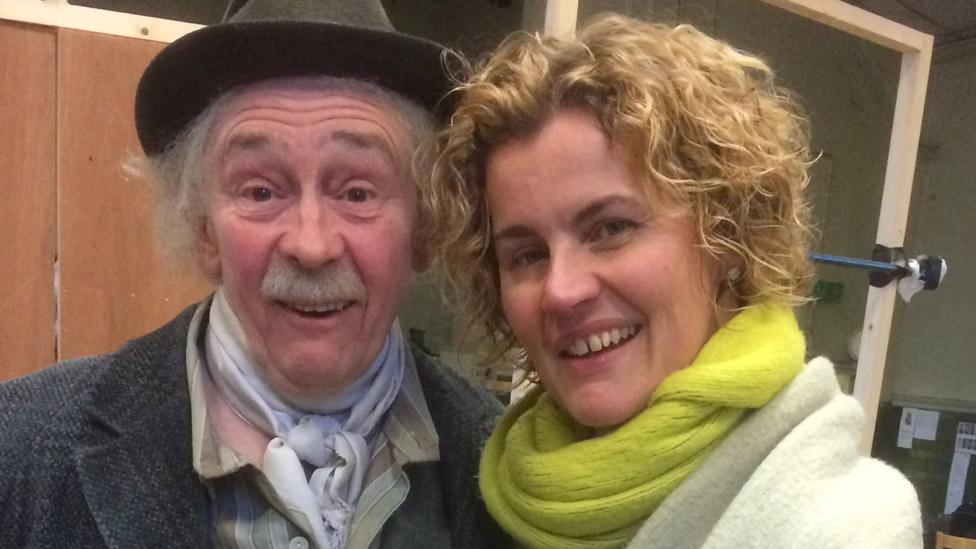Budget 2021: How does it affect entertainment and arts?
- Published

Laura Mvula performs at Gorilla in Manchester - a venue that last year narrowly avoided closure
Entertainment and arts bodies have broadly welcomed Wednesday's Budget announcement, while also demanding greater support and clarity.
Chancellor Rishi Sunak announced the Government will give £390m to help arts venues in England, including theatres, museums and galleries, reopen.
The lion's share (£300m) will go into the pre-existing Culture Recovery Fund, he explained.
While £90m will go to helping national museums and cultural bodies.
Elsewhere, Mr Sunak announced that the Film and TV Production Restart Scheme will be extended for six months until 31 December 2021.
Reacting to the Budget, Music Venue Trust boss Mark Davyd said his organisation was pleased but also left with unanswered questions.
"Music Venue Trust welcomes the extensions to furlough, SEISS [Self-Employment Income Support Scheme] and the VAT cut on ticket sales," he said. "These measures are supportive of the next steps in the campaign to reopen every venue safely.
"On business rates, we note that the Chancellor has provided a 100% cut for the initial three-month period in which venues will not be trading. This period does not resolve the long running debate on business rates, and we look forward to a full discussion of this outdated and anachronistic taxation in the Business Rates Review in Autumn 2021."
'Revenue decimated'
Greg Parmley, CEO of LIVE, the UK's official industry body for live music, said he "warmly welcomed" the additional financial support, which he described as "due recognition from [the] government that the live music industry has been one of the hardest hit by the pandemic".
"The extension of the reduced 5% rate of VAT, in particular, will provide significant support to businesses who have had their revenue decimated over the past year," he wrote. "The extension of the furlough and other employment support schemes will also be hugely important across the industry.

A member of staff wearing a protective face shield walks past Bathers at Asnieres by Georges Seurat inside the National Gallery in July 2020
"Today's budget focused on helping live music to survive the long months of closure still ahead of us - and we desperately need that," he added.
He then called on the Chancellor "to look again at a government-backed insurance scheme" which, he said, "would ensure we can recover, and get people back to work, as quickly as possible once it is safe to lift restrictions."
Paul Reed, CEO of Association of Independent Festivals, echoed those sentiments, saying "independent festival organisers would much rather mobilise their staff to plan a full and successful festival season this summer".

There will be no crowds and flags at Glastonbury Festival in 2021
"As we have repeatedly stressed, the only way they can do this is with a government-backed insurance scheme that covers Covid-19 related cancellation," he said.
The Musician's Union, meanwhile, tweeted that the additional funding was good news but noted that musicians - including many freelancers - would continue to fall "through the gaps".
Allow X content?
This article contains content provided by X. We ask for your permission before anything is loaded, as they may be using cookies and other technologies. You may want to read X’s cookie policy, external and privacy policy, external before accepting. To view this content choose ‘accept and continue’.
Michael Kill, CEO of the Nighttime Industries Association (NTIA) agreed that it was "unacceptable that the chancellor continues to let down other freelance workers in our sector". He said the Budget showed Mr Sunak and the Government did not understand "the specific challenges" of their dormant industry.
"In our pre-Budget survey, nearly 80% of nightlife businesses said this Budget was critical to their survival," Kill wrote in a statement. "Despite this, the Budget is yet another statement from the Chancellor that has failed to recognise the need for additional support for the night time economy sector.
"We welcome the extension of VAT and rates relief, and that more money is going to hospitality and the Culture Recovery Fund (CRF). But both of these interventions again reveal the Chancellor's inability to comprehend the specific challenges faced by night time economy businesses, such as nightclubs, casinos and bars, many of which have been entirely unable to open during the pandemic and face higher costs relative to wider hospitality."
He added: "With no meaningful expansion to CRF eligibility, and no bespoke support for our sector, we are once again left with a package totally incommensurate with businesses' costs - including spiralling commercial rent arrears. The loan solutions outlined by the Chancellor just aren't good enough for businesses that are already overburdened with debt".

Obioma Ugoala performs during Turn Up London at Cadogan Hall in June 2020
Julian Bird, chief executive of the Society of London Theatre (SOLT) and UK Theatre opined it was "wonderful that the Government recognises the value of our world-leading culture sector".
"The extension of the Self-Employment Income Support Scheme to cover new entrants in the 2019/20 tax year will help many in our sector," he said. "But we urge the government to continue to look at the plight of other individuals who have fallen through the gaps of furlough and self-employed support.
"In order to reopen, theatre and the performing arts continue to need insurance cover, and we call upon the government to put this in place as for other sectors."

Follow us on Facebook, external, on Twitter @BBCNewsEnts, external. If you have a story suggestion email entertainment.news@bbc.co.uk, external.
Related topics
- Published3 March 2021

- Published2 March 2021

- Published2 March 2021

- Published1 March 2021
